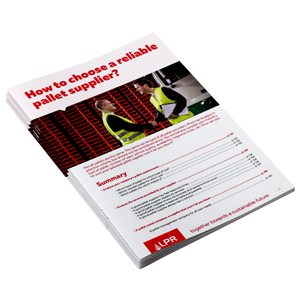The consumer goods industry undergoes constant transformation, influenced by evolving consumer purchasing habits that are driven by prevailing trends.
New technological innovations, environmental concerns, socio-economic upheavals...it is within this dynamic environment, amidst the bustling aisles of supermarkets and shelves overflowing with products, that private label brands are gradually establishing themselves as an indispensable part of the fast-moving consumer goods (FMCG) arena.
Navigating the intersection between competitiveness, quality, and adaptation to emerging standards, private label brands are redefining their offerings to appeal to more consumers.
From this perspective, this article delves into the realm of private label brands. We will investigate the drivers behind their growth and unravel some of the innovative strategies propelling them to the forefront of the commercial landscape.
Menu:
1 | European economic inflation: a springboard for private labels
2 | Private labels brands: what is the situation at the European level?
3 | Loyalty: a significant challenge for retail brands
4 | The divide between private labels and national brands is closing
1. European economic inflation: a springboard for private labels
Despite the encouraging annual inflation rate forecasts for the Eurozone released by Eurostat, suggesting a gradual decline throughout 2023, the economic landscape in Europe remains complicated due to the ongoing complexities stemming from the Ukraine War.
Inflation significantly affects the finances of European households, particularly when it comes to covering their food expenses. In France, for instance, INSEE has documented a consumer price increase of over 5.2% in 2022, marking the most substantial price surge in France since 1991 when it was at +3.2%.
In this fiercely competitive environment, the decrease in consumer buying power paradoxically favours one participant in the food market: private label brands.
Today, achieving value in the eyes of consumers extends beyond offering affordability alone. Retailers are forced to blend diverse consumer expectations into their formula for crafting appealing private label brands.
This is precisely how private label brands excel in capturing consumer interest – by offering an attractive price point while also aligning with consumers' desire for high-quality products that resonate with their core values.
Take, for instance, retailers like Lidl, who are allocating resources to introduce vegan food options within their private label offerings. This strategic move aims to effectively cater to consumers seeking responsible and animal-friendly products at a budget-friendly price point.
2. Private label brands: what is the situation at the European level?
Beyond economic inflation, European private label brands are forging ahead of their global counterparts. With the backing of retailers like Lidl, Aldi, Rewe, Tesco, Carrefour, and Mercadona, European private labels currently command over 37% of the food distribution market within the European Economic Commission— a staggering 17% more than that of North America.
As we approach 2024, what prospects and trends are on the horizon for these private labels?
European markets continue to be among the most important in the world for private labels.
In 2022, a study conducted by NielsenIQ for the Private Label Manufacturers Association revealed significant growth in private labels across the 17 largest European markets.
Collectively, they experienced a 1.2% increase in market share compared to 2021, now accounting for 37% of the food market, equivalent to 302 billion euros.
Consumers are increasingly opting for private labels due to their perceived value for money proposition.
Among the 17 countries examined, 16 witnessed a surge in private label popularity, with Switzerland being the sole exception. In Switzerland, private label market share declined by 0.4%. Interestingly, Switzerland stands out as the only country in the study where private label brands command over 50% of the market share!
Notable private label growth was most pronounced in the Czech Republic, Portugal, Spain, and Hungary, where market share expansion exceeded 2.2%.
When it comes to products, three categories are fuelling the expansion of private labels in Europe:
-
Perishable and frozen foods
-
Unrefrigerated foods
-
Stationery
Among these three product categories, private labels hold a market share exceeding 50% in the European countries studied.
In Hungary, there was a remarkable 3.5% rise in the market retail price (MRP) of private labels for perishable food items in the past year alone, culminating in an impressive 7.2% growth rate.
Conversely, private label market share has dwindled in the majority of European countries for other product categories, particularly in the alcoholic beverage and health product sectors.
In summary, private labels continue to consolidate their presence in the European food sector, a sector that maintains its global dominance. And substantial growth is also evident in select markets and specific product categories as well.
Rewe is expanding its Ja! private label range.
The inflation crisis has put pressure on the German retailer Rewe. In response, the company has taken proactive measures by broadening its selection of budget-friendly products under the private label "Ja!" with the goal of providing consumers with exceptional value for money.
This strategic manoeuvre has allowed Rewe to stand out by capitalising on several critical strengths, such as an extensive product range, recognised expertise in fresh produce and deli sections, and a versatile portfolio of private labels.
Edeka invests in organic food with “Edeka Bio”.
In the current economic climate, Edeka aims to establish a more robust foothold in the German market, which is currently heavily shaped by discount brands.
To accomplish this, the company intends to:
-
improve the in-store experience to strengthen its role as a “destination store” for consumers
-
expand its organic product range to encompass up to 440 distinct offerings to set itself apart.
3. Loyalty: a significant challenge for retail brands
Private labels are gaining momentum as consumers explore new, budget-friendly product options, but with this growth comes a significant challenge: loyalty.
Loyalty encompasses several key factors:
-
Premium Quality Private Labels: Private labels rise to the challenge of providing top-notch, competitive products by continuously investing in enhancing the performance and profitability of their supply chain.
-
Tailor-made Loyalty Programs: Leveraging precise data derived from the implementation of artificial intelligence within the supply chain, retailers can provide tailored promotions and benefits at various points of sale based on their private label statistics.
-
Enhancing the In-Store Experience: Private label brands are keeping pace with the modernisation of their stores. Through omnichannel strategies and digitalisation, consumers can access private label brands conveniently, anytime, and anywhere.

4. The divide between private labels and national brands is closing
Gradually, private label brands are shaking off the traditional image that once characterised them as low-end, lacking in quality, but offered at highly attractive prices.
Today, more than ever, private label brands are further establishing themselves in the market with stylish and trendy offerings:
-
By expanding their product ranges
-
By presenting products with more refined and stylish visual identities
-
By investing in the organic and sustainable food sector
Through collaborations with local and regional producers, the expansion of plant-based and organic product lines, and the implementation of eco-friendly design practices, private label brands are actively striving to meet the demands of consumers seeking healthier and more sustainable options.
One prime example of this transformation in private labels is showcased by the French retailer Intermarché.
Best in category for several years, renowned for its exceptional service counters, localised approach, and full ownership of its private label manufacturing company, Agromousquetaires, this retailer has established itself as a champion of private labels, offering French knowledge and 'better eating' accessible to budget-conscious consumers.
Their commitment to providing increasingly local, nutritious, and environmentally friendly products continues to gain momentum.
Since 2019, Intermarché has launched a comprehensive program to develop more sustainable products within its private label portfolio, addressing environmental, nutritional, and societal challenges. This initiative includes recipe modifications to remove controversial additives, a complete overhaul and eco-design of packaging to enhance recyclability, and the expansion of its organic product range. The retailer has already successfully enhanced over 2,300 of its products and has set an ambitious goal to improve 6,500 products by 2025.
Conclusion
In conclusion, the rise of private labels in the consumer goods sector mirrors retailers' adaptability in the face of evolving consumer demands.
Capitalising on economic shifts, these labels have succeeded in carving out a niche among other brands by presenting products that are not only more cost-effective but also durable and of high quality.
Nonetheless, securing consumer loyalty remains a major challenge amidst heightened competition and well-established habits among certain consumers, who are often reluctant to stray from their favoured brands.
Our teams are available to assist you and ensure a smooth transition towards making the change. Contact us today!



